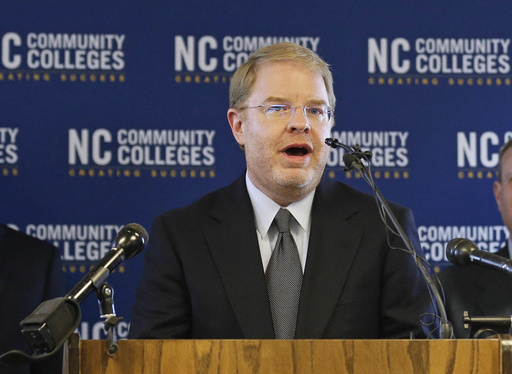After an extended period of speculation, Lee Roberts, who held the position of interim chancellor, has been confirmed as the 13th chancellor of the University of North Carolina at Chapel Hill. The approval was made on Friday by the University of North Carolina Board of Governors, marking the end of a highly anticipated search process.
UNC System President Peter Hans, responsible for nominating a candidate for the chancellor position, emphasized the need for a fresh perspective to guide the university through current turbulent times in higher education. Hans expressed confidence in Roberts, stating that he is the right leader for the university at this crucial moment.
An experienced figure in finance, Roberts previously served as the state budget director for former Republican Governor Pat McCrory and founded an investment firm in Raleigh. Despite his financial background, Roberts emphasized that he respects academics by stating he is not there to instruct them on their jobs.
Roberts’ leadership was showcased during campus protests, where his actions, including raising the American flag taken down by demonstrators, received praise from Republican leaders like Senate President Phil Berger and House Speaker Tim Moore, who endorsed Roberts for the chancellorship.
Now entrusted with leading the university, Roberts will navigate significant changes, including the ongoing revisions to the university system’s diversity policy. His predecessor, Kevin Guskiewicz, left the post in January to lead Michigan State University after overseeing a tumultuous period at UNC.
The search for a new chancellor involved a committee of 13 members, with the process kept mostly confidential as per systemwide policy. Despite the confidential nature of the search, emphasis was placed on recruiting candidates with diverse backgrounds and leadership experiences.
The search committee aimed to find the best leader to advance the university, acknowledging the competitive national market for talented leaders in higher education. While some candidates with political backgrounds have sparked controversies on university campuses in the past, the committee focused on finding a leader with the right expertise and vision for UNC’s future.


